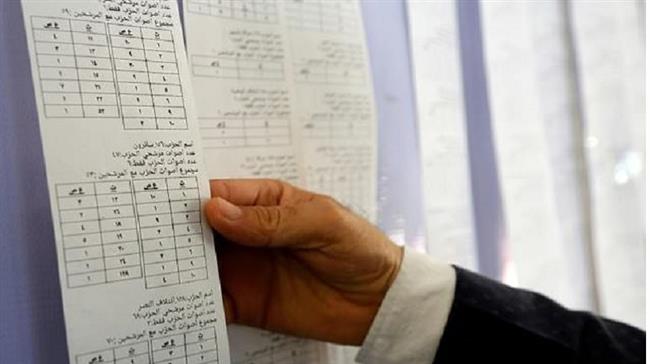
RNA - The verdict from the Supreme Federal Court on Thursday confirmed the recount process, which was opposed by some parties who made significant gains in the election.
The court ruling concerned a law passed by Parliament that mandated a full, manual recount of the vote. Chief Justice Medhat al-Mahmoud said the legislation was broadly constitutional and endorsed the order to replace the Independent Elections Commission with a panel of nine judges to supervise the recount.
"The Supreme Federal Court finds that parliament's decision was to organize the electoral process and restore voter confidence in the electoral process; it was within parliament's constitutional rights and does not contradict the constitution," said Mahmoud.
Mahmoud stated that all of the roughly 11 million ballots, including those of voters living abroad, displaced persons and security forces, must be recounted.
Parliament, which had mandated the recount after a government report found serious violations had taken place, had also cancelled some results such as overseas and displaced votes by amending the election law this month.
The chief justice, however, ruled that the mass invalidation of overseas, displaced, and Peshmerga ballots in the country's semi-autonomous Kurdistan Region was unconstitutional.
"This cancellation ... presents a squandering of votes and confiscation of the will of voters in these areas which violates constitutional articles that guarantee the right to equality and voting," noted Mahmoud.
Mahmoud said the sweeping measure was unjust to voters whose ballots were shown to be legitimate.
The recount process began after judges took over the leadership of Iraq's Independent High Elections Commission.
Earlier this month, a storage site housing ballot boxes from Iraq’s May parliamentary elections in the capital Baghdad caught fire ahead of a recount. The fire broke out in a warehouse located in Russafa, one of the largest voting districts in eastern Baghdad, on June 10.
According to Press TV, the latest court ruling could undermine nationalist cleric Moqtada al-Sadr, who’s bloc won the largest amount of seats in the elections.
Sadr's Sairoon bloc won 54 out of 329 seats in the Iraqi parliament. The Fatah (Conquest) alliance, led by Badr Organization Secretary General Hadi al-Ameri, and Prime Minister Haider al-Abadi's Nasr (Victory) coalition finished second and third with 47 and 42 seats, respectively.
The next prime minster will face the huge task of rebuilding a country shattered by the war against Daesh terrorists and the 2003 US invasion.
847/940